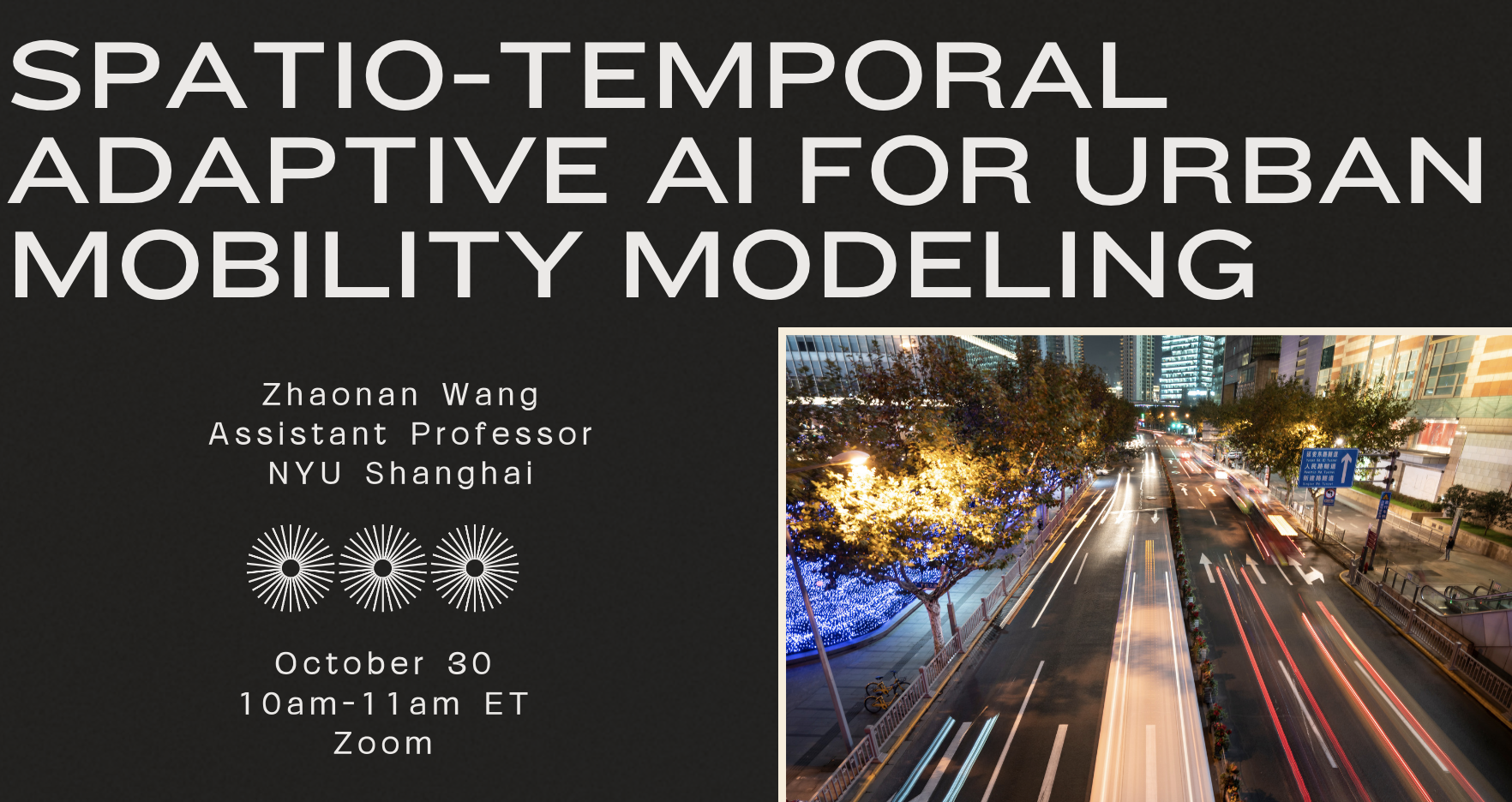
- This event has passed.
Webinar: Spatio-temporal Adaptive AI for Urban Mobility Modeling
October 30, 2024 @ 10:00 am - 11:00 am
Abstract: Rapidly developing mobile and sensor networks are accumulating massive volumes of human mobility data in cities. Predictive modeling on these data is a fundamental problem in building decision support systems for various urban and transportation applications. In the real world, such spatio-temporal data show multifold heterogeneity over space and non-stationarity over time, which makes the prediction task especially challenging. My research focuses on developing adaptive AI algorithms (e.g., meta learning) to enhance the robustness of mobility prediction models. Making robust predictions across space and time lays a foundation for not only next generation mobility services, but also emergency response to adverse events, including traffic accidents, pandemic lockdown, and natural disasters.
Bio: Zhaonan Wang joined NYU Shanghai in Fall 2024 as a Tenure-Track Assistant Professor jointly appointed by Urban Studies and Computer Science. Zhaonan obtained his PhD degree in 2022 from the University of Tokyo, advised by Ryosuke Shibasaki; during his PhD study, he also visited the research group led by Flora Salim, Cisco Chair at UNSW CSE. After graduation, Zhaonan did his postdoctoral research on Spatial AI under the supervision of Shaowen Wang and Jiawei Han at the University of Illinois Urbana-Champaign (CyberGIS Center & NSF I-GUIDE). Zhaonan’s research interests lie in the interdisciplinary area between urban & AI, and he’s been published in top-tier AI and data science venues, including AAAI, KDD, WWW, CIKM, ICDE, AIJ, TKDE. He’s also been invited to serve as a Program Committee member and awarded travel grants for multiple times. During his PhD, Zhaonan won a MEXT (Japanese government) scholarship in Top Global University Initiative, Top-10 candidates in KDD Cup 2019 Humanity RL Track, and best resource paper runner-up at ACM CIKM 2021. He also had close collaboration with industry, including the National Institute of Advanced Industrial Science and Technology (AIST in Japan)’s AI Research Center, Yahoo Japan, and Toyota.

